When it comes to nutty goodness, few treats can rival the unique flavor and versatility of hazelnuts. In recent years, the demand for organic hazelnuts has been on the rise, as more and more consumers seek out wholesome and sustainable food choices. From their health benefits to culinary uses and the eco-friendly practices employed in their cultivation, organic hazelnuts are truly a gem of nature. In this comprehensive guide, we delve into the world of organic hazelnuts, exploring their nutritional value, culinary applications, and the sustainable farming methods that make them a top choice for conscious consumers. Nutritional Value of Organic Hazelnuts: Organic hazelnuts are not only a delicious snack but also pack a nutritional punch.

.
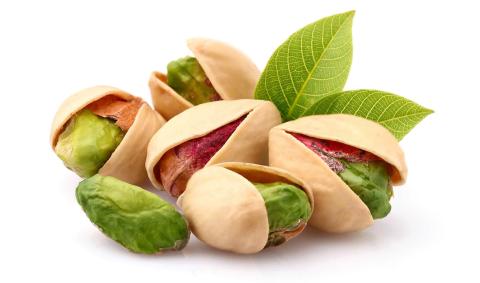 These crunchy nuts are a rich source of essential nutrients, including healthy fats, protein, fiber, vitamins, and minerals. Hazelnuts are particularly high in monounsaturated fats, which are known to promote heart health by reducing bad cholesterol levels. They also contain vitamin E, an antioxidant that helps protect cells from damage, and minerals such as magnesium, copper, and manganese, which play vital roles in various bodily functions. In addition to their nutrient content, organic hazelnuts are also a good source of plant-based protein, making them an excellent choice for vegans and vegetarians looking to meet their protein needs. Including hazelnuts in your diet can help support overall wellbeing and provide a satisfying and nutritious snacking option. Whether eaten on their own, sprinkled over salads, or added to baked goods, organic hazelnuts are a versatile ingredient that adds both flavor and nutritional value to a variety of dishes. Health Benefits of Organic Hazelnuts: Consuming organic hazelnuts not only pleases your taste buds but also offers a range of health benefits. The monounsaturated fats in hazelnuts have been linked to improved heart health, as they can help lower levels of LDL cholesterol and reduce the risk of cardiovascular diseases. The high antioxidant content of hazelnuts, particularly vitamin E, may also play a role in protecting against oxidative stress and inflammation in the body. Hazelnuts are known for their potential to support brain health, thanks to their abundance of vitamin E and other antioxidants. These nutrients help combat oxidative damage to brain cells and may contribute to better cognitive function and memory. Furthermore, hazelnuts are a good source of magnesium, a mineral that is essential for nerve function and can help reduce the risk of conditions such as migraines and anxiety. The fiber content in hazelnuts also plays a crucial role in supporting digestive health. Fiber helps promote regular bowel movements, prevents constipation, and supports the growth of beneficial gut bacteria.
These crunchy nuts are a rich source of essential nutrients, including healthy fats, protein, fiber, vitamins, and minerals. Hazelnuts are particularly high in monounsaturated fats, which are known to promote heart health by reducing bad cholesterol levels. They also contain vitamin E, an antioxidant that helps protect cells from damage, and minerals such as magnesium, copper, and manganese, which play vital roles in various bodily functions. In addition to their nutrient content, organic hazelnuts are also a good source of plant-based protein, making them an excellent choice for vegans and vegetarians looking to meet their protein needs. Including hazelnuts in your diet can help support overall wellbeing and provide a satisfying and nutritious snacking option. Whether eaten on their own, sprinkled over salads, or added to baked goods, organic hazelnuts are a versatile ingredient that adds both flavor and nutritional value to a variety of dishes. Health Benefits of Organic Hazelnuts: Consuming organic hazelnuts not only pleases your taste buds but also offers a range of health benefits. The monounsaturated fats in hazelnuts have been linked to improved heart health, as they can help lower levels of LDL cholesterol and reduce the risk of cardiovascular diseases. The high antioxidant content of hazelnuts, particularly vitamin E, may also play a role in protecting against oxidative stress and inflammation in the body. Hazelnuts are known for their potential to support brain health, thanks to their abundance of vitamin E and other antioxidants. These nutrients help combat oxidative damage to brain cells and may contribute to better cognitive function and memory. Furthermore, hazelnuts are a good source of magnesium, a mineral that is essential for nerve function and can help reduce the risk of conditions such as migraines and anxiety. The fiber content in hazelnuts also plays a crucial role in supporting digestive health. Fiber helps promote regular bowel movements, prevents constipation, and supports the growth of beneficial gut bacteria.
..
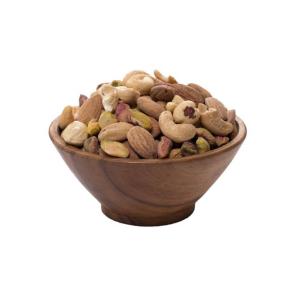 Including organic hazelnuts in your diet can contribute to a healthy digestive system and overall gut health. Culinary Uses of Organic Hazelnuts: Organic hazelnuts are a versatile ingredient that can be used in a wide range of culinary applications, from savory to sweet dishes. Their rich, nutty flavor and crunchy texture make them a popular addition to various recipes, adding depth and complexity to dishes. Here are some creative ways to incorporate organic hazelnuts into your cooking: – Homemade Nut Butter: Roast hazelnuts in the oven, then blend them in a food processor with a bit of salt and optional sweetener for a delicious homemade hazelnut butter. This creamy spread can be enjoyed on toast, drizzled over oatmeal, or used as a dip for fruit. – Nutty Salad Topping: Toasted hazelnuts add a satisfying crunch to salads. Simply chop the nuts and sprinkle them over your favorite salad combination for an extra burst of flavor and texture. – Hazelnut Crusted Fish or Chicken: Crushed hazelnuts can be used as a flavorful coating for fish fillets or chicken breasts. Dip the protein in beaten egg, then coat with a mixture of crushed hazelnuts and breadcrumbs before baking or pan-searing for a crispy and delicious dish. – Hazelnut Desserts: Hazelnuts pair beautifully with chocolate, making them a popular choice for desserts. From hazelnut chocolate truffles to hazelnut brownies and cakes, the possibilities are endless for creating decadent and indulgent treats using organic hazelnuts. Sustainable Farming Practices for Organic Hazelnuts: Organic hazelnuts are not only beneficial for your health but also for the environment, thanks to the sustainable farming practices used in their cultivation.
Including organic hazelnuts in your diet can contribute to a healthy digestive system and overall gut health. Culinary Uses of Organic Hazelnuts: Organic hazelnuts are a versatile ingredient that can be used in a wide range of culinary applications, from savory to sweet dishes. Their rich, nutty flavor and crunchy texture make them a popular addition to various recipes, adding depth and complexity to dishes. Here are some creative ways to incorporate organic hazelnuts into your cooking: – Homemade Nut Butter: Roast hazelnuts in the oven, then blend them in a food processor with a bit of salt and optional sweetener for a delicious homemade hazelnut butter. This creamy spread can be enjoyed on toast, drizzled over oatmeal, or used as a dip for fruit. – Nutty Salad Topping: Toasted hazelnuts add a satisfying crunch to salads. Simply chop the nuts and sprinkle them over your favorite salad combination for an extra burst of flavor and texture. – Hazelnut Crusted Fish or Chicken: Crushed hazelnuts can be used as a flavorful coating for fish fillets or chicken breasts. Dip the protein in beaten egg, then coat with a mixture of crushed hazelnuts and breadcrumbs before baking or pan-searing for a crispy and delicious dish. – Hazelnut Desserts: Hazelnuts pair beautifully with chocolate, making them a popular choice for desserts. From hazelnut chocolate truffles to hazelnut brownies and cakes, the possibilities are endless for creating decadent and indulgent treats using organic hazelnuts. Sustainable Farming Practices for Organic Hazelnuts: Organic hazelnuts are not only beneficial for your health but also for the environment, thanks to the sustainable farming practices used in their cultivation.
…
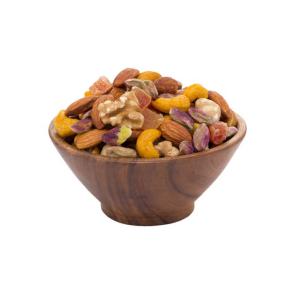 Organic hazelnut farms prioritize the health of the soil, water, and surrounding ecosystems, aiming to minimize their environmental impact and promote biodiversity. Here are some key sustainable farming practices commonly employed in organic hazelnut production: – Organic Certification: Organic hazelnut farmers adhere to strict certification standards, which prohibit the use of synthetic pesticides, herbicides, and fertilizers. Instead, organic farmers rely on natural methods such as crop rotation, composting, and beneficial insects to manage pests and maintain soil fertility. – Agroforestry: Many organic hazelnut farms practice agroforestry, a farming system that combines trees with crops or livestock to create diverse and resilient ecosystems. Hazelnut trees are often intercropped with other plant species, providing habitat for beneficial wildlife, improving soil health, and enhancing biodiversity on the farm. – Water Conservation: Sustainable hazelnut farming includes practices that help conserve water resources, such as mulching to retain soil moisture, drip irrigation systems to reduce water usage, and rainwater harvesting techniques. By efficiently managing water resources, organic hazelnut farmers can minimize their water footprint and support a more sustainable food system. – Community Engagement: Organic hazelnut farms often foster strong connections with local communities, supporting the livelihoods of farmers and creating opportunities for education and collaboration. By engaging with consumers, stakeholders, and other farmers, organic hazelnut producers can promote awareness of sustainable agriculture practices and build a more resilient and environmentally conscious food system.
Organic hazelnut farms prioritize the health of the soil, water, and surrounding ecosystems, aiming to minimize their environmental impact and promote biodiversity. Here are some key sustainable farming practices commonly employed in organic hazelnut production: – Organic Certification: Organic hazelnut farmers adhere to strict certification standards, which prohibit the use of synthetic pesticides, herbicides, and fertilizers. Instead, organic farmers rely on natural methods such as crop rotation, composting, and beneficial insects to manage pests and maintain soil fertility. – Agroforestry: Many organic hazelnut farms practice agroforestry, a farming system that combines trees with crops or livestock to create diverse and resilient ecosystems. Hazelnut trees are often intercropped with other plant species, providing habitat for beneficial wildlife, improving soil health, and enhancing biodiversity on the farm. – Water Conservation: Sustainable hazelnut farming includes practices that help conserve water resources, such as mulching to retain soil moisture, drip irrigation systems to reduce water usage, and rainwater harvesting techniques. By efficiently managing water resources, organic hazelnut farmers can minimize their water footprint and support a more sustainable food system. – Community Engagement: Organic hazelnut farms often foster strong connections with local communities, supporting the livelihoods of farmers and creating opportunities for education and collaboration. By engaging with consumers, stakeholders, and other farmers, organic hazelnut producers can promote awareness of sustainable agriculture practices and build a more resilient and environmentally conscious food system.

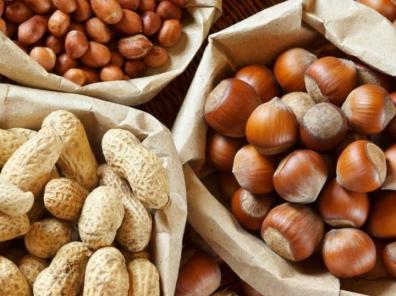
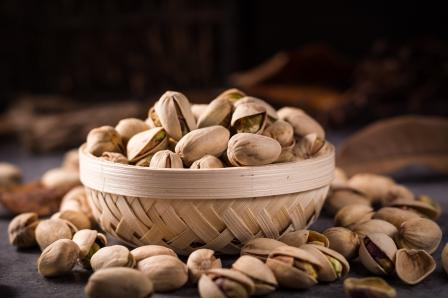
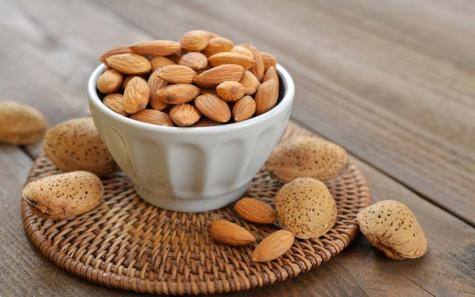
Your comment submitted.